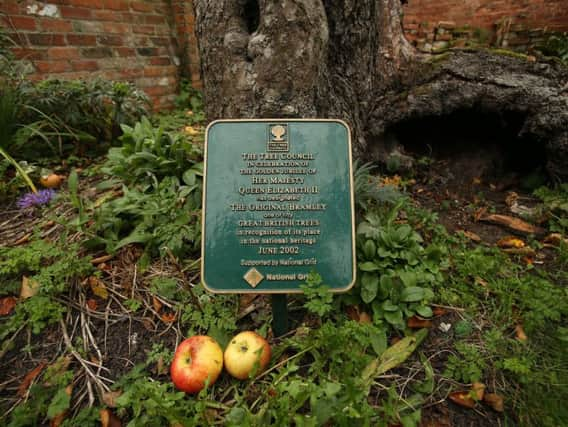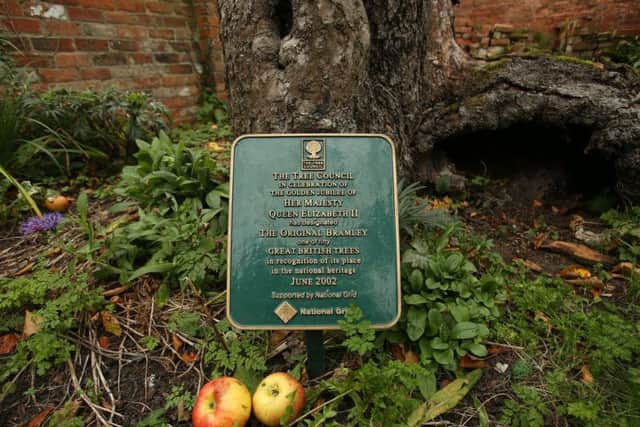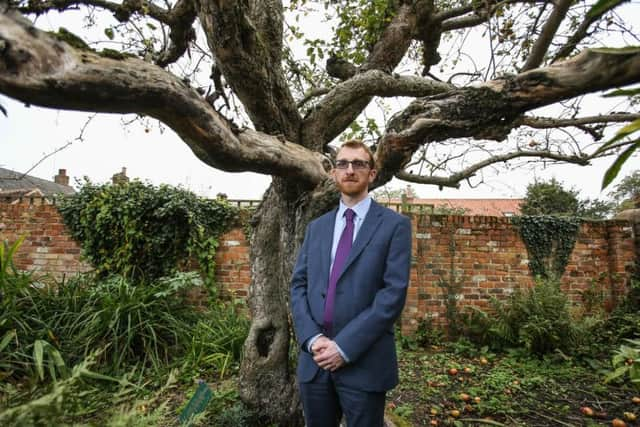VIDEO: UK's original Bramley apple tree in Notts to be saved by university?


The historic tree was planted more than 200 years ago in the back garden of a Southwell cottage and is hailed as being the "mother" of all modern Bramley apples.
But in July, it was feared it would be lost forever after becoming gripped by an incurable honey fungus infection.
Advertisement
Hide AdAdvertisement
Hide AdNottingham Trent University has now stepped in to try and acquire the tree after elderly resident, Nancy Harrison, who had been its custodian, died.


Horticulture boffins hope if the sale goes through they can breath new life into the ageing tree in a bid to prolong its life.
Professor Robert Mortimer, Dean of Nottingham Trent University's School of Animal, Rural and Environmental Sciences. said:"The Bramley is the nation's favourite cooking apple and the original tree is one of the most significant and well-known
"Unfortunately it will inevitably perish due to disease, but we would like to try to preserve this great tree for the people of Southwell for as long as possible.
Advertisement
Hide AdAdvertisement
Hide Ad"It has such huge cultural significance for the town and for Nottinghamshire, but also nationally and globally. We want to play our part in recognising its importance."


The tree sprang up from a seed set by a girl called Mary Ann Brailsford some time between 1809 and 1815 and survived a lightning strike at the dawn of the 20th century.
The university also plans to refurbish the cottages in the Nottinghamshire town of Southwell, and use them for postgraduate student accommodation.
The aim would also be to open up the rose garden to the public, as well as develop plans to formally celebrate the history and heritage of the UK's most popular cooking apple.
Advertisement
Hide AdAdvertisement
Hide AdIn the mid-19th century the cottages and tree were acquired by Matthew Bramley, who allowed local nurseryman Henry Merryweather to take cuttings from the tree provided the apples bore the name Bramley's Seedling.


The first recorded sale of a Bramley was on October 31, 1862, when Merryweather sold three apples for two shillings.
Today there are more than 300 Bramley growers in England, with about 83,000 tonnes of the apples grown annually in the UK alone.